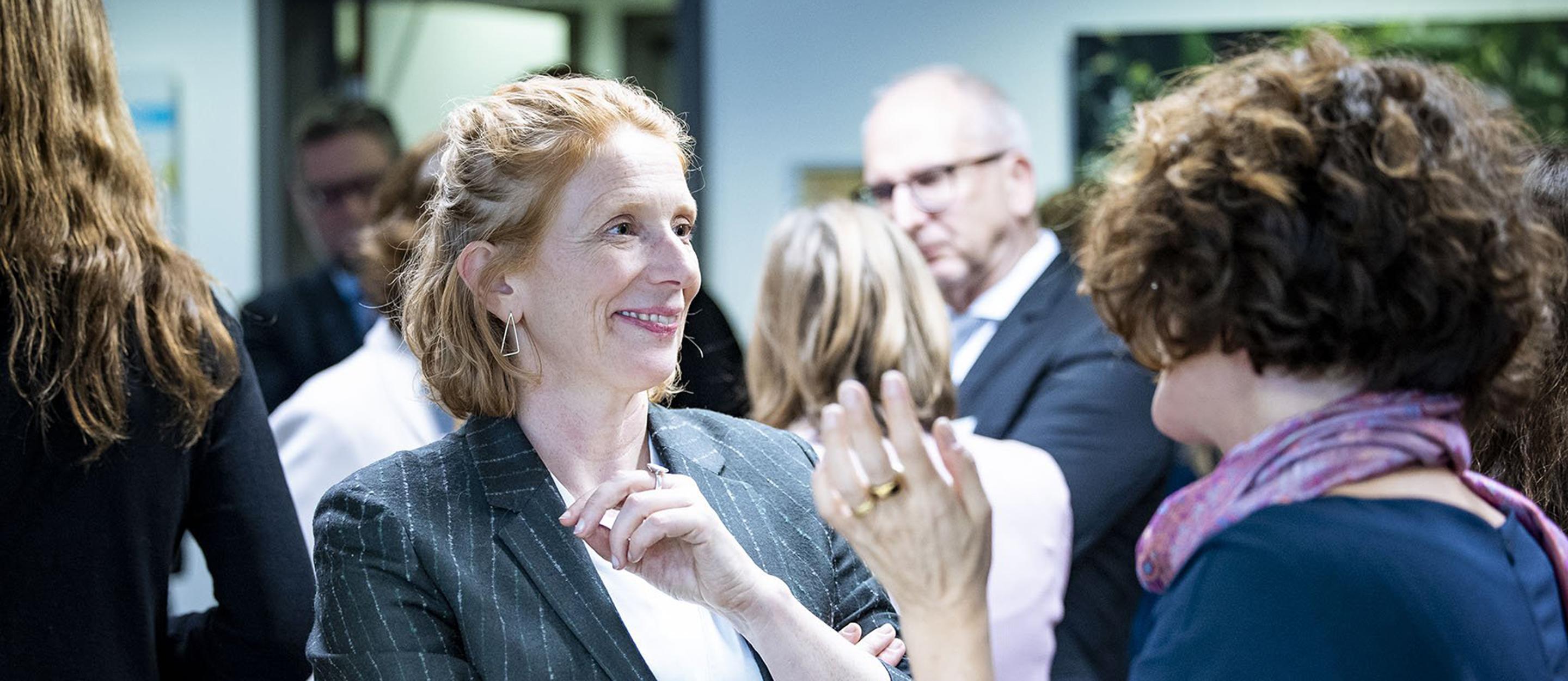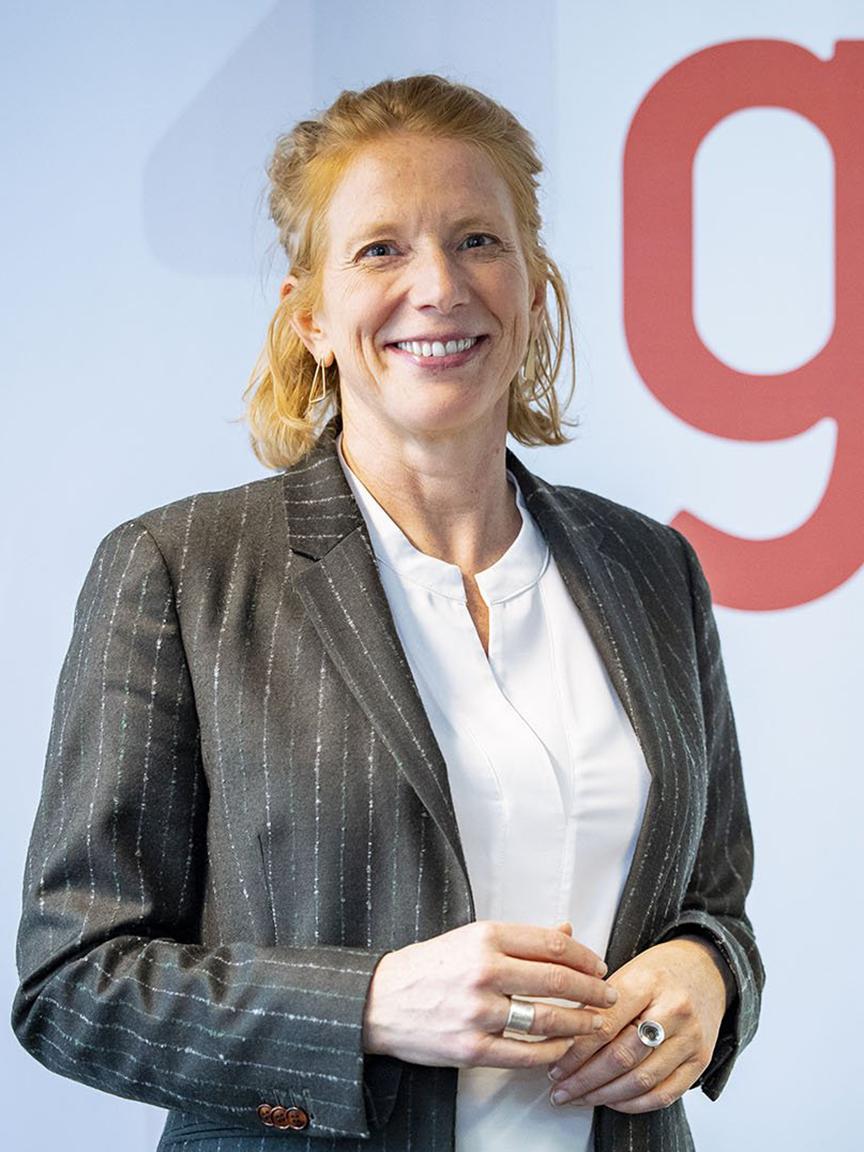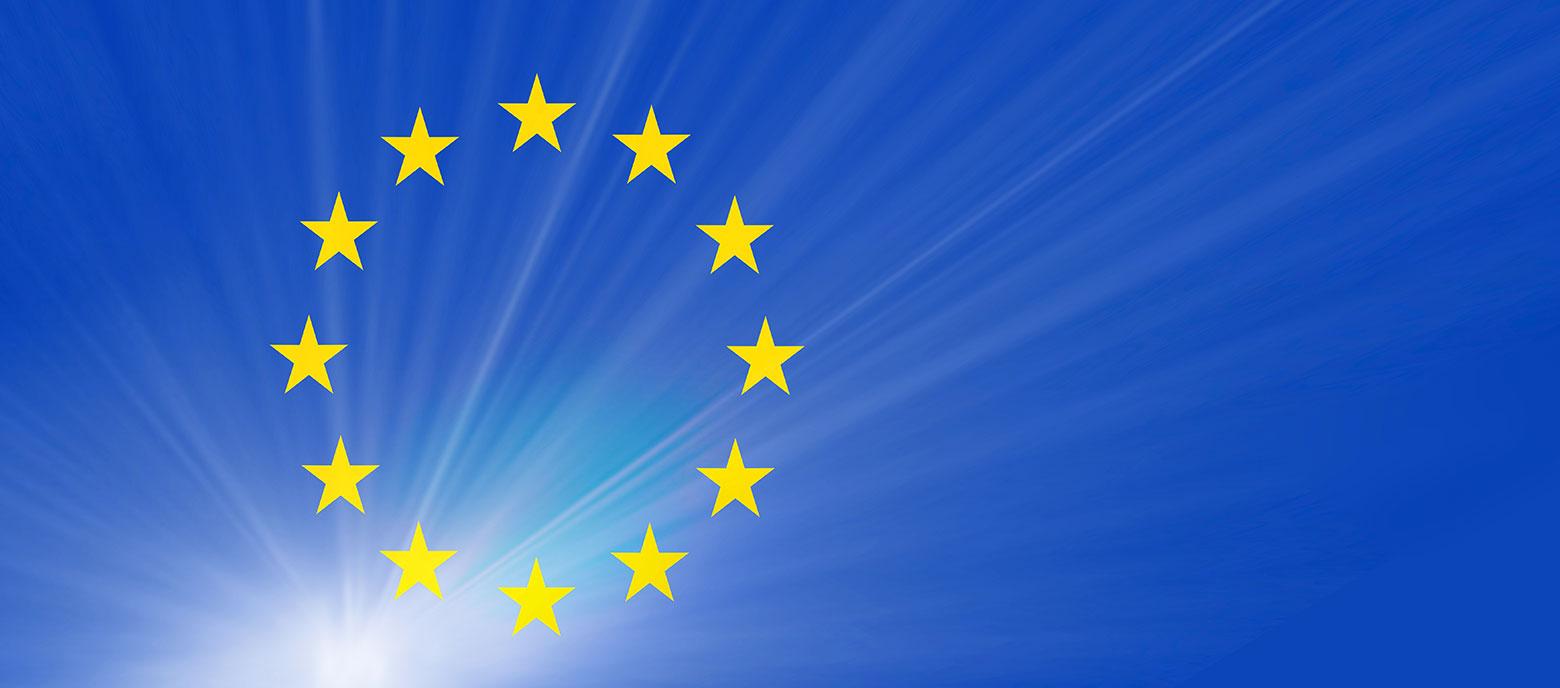The Directorate-General for Development Cooperation and Humanitarian Aid plans, steers and oversees the Official Development Assistance (ODA) from the Belgian Federal Government. The ODA is operationalised through and with different partner organisations including the implementing agency Enabel, the Belgian sister organisation of GIZ. The Directorate-General is anchored within the Belgian Ministry of Foreign Affairs.
 GIZ/Iris Felicia Haidau
GIZ/Iris Felicia Haidau
‘Investment in our common future’
Heidy Rombouts, Director General of Development Cooperation and Humanitarian Aid at the Belgian Ministry of Foreign Affairs, Foreign Trade and Development Cooperation, on the priorities of Belgium’s EU Council Presidency, Team Europe approach and why it is important to sometimes change your perspective
Ms Rombouts, in the first half of 2024, Belgium is at the helm of the Council Presidency in Brussels. What are the overarching priorities related to European development cooperation?
Most notably, the Belgian Presidency gives center stage to the need to build sustainable, mutually beneficial and genuine partnerships. These partnerships are critical for Europe; especially in the current geo-political context. In today’s world of poly-crises and changed international equilibria, building and fostering genuine partnerships, based on a solid policy dialogue and long-term commitment, is the most important task for my directorate general. Investing in these partnerships is a direly needed investment in our common future.
Can you give a specific example?
During the COVID-19 pandemic we all learned that: ‘nobody is safe until everybody is safe.’ At the beginning of February 2024, a Team Europe Ministerial Health Mission travelled to the African Union (AU) in Addis Ababa. The EU Commissioner for Health, Stella Kyriakides, and our Minister for Development Cooperation, Caroline Gennez, led this Team Europe mission. We were welcomed by Commissioner Minata Samaté Cessouma from the AU and the Director General to the African Centres for Disease Control and Prevention, Jean Kaseya. It was all about jointly investing in global health. The commitment to expand local manufacturing of medical products is a specific example of this. The availability of more quality products such as vaccines and drugs will be beneficial for protecting the health of people in Africa and Europe.
 GIZ/Iris Felicia Haidau
GIZ/Iris Felicia Haidau
Heidy Rombouts has been Director General of Development Cooperation and Humanitarian Aid at the Belgian Ministry of Foreign Affairs, Foreign Trade and Development Cooperation since 2021. She has 25 years of experience in international cooperation with various institutions and countries.
How does the Belgian Presidency intend to further promote the Team Europe approach and how do you see the role of international cooperation agencies such as GIZ?
When we look at the world today, we can but conclude that international cooperation and development have moved from niche to center. Many of the major core challenges on the international agenda regard fields of international development: global health, climate, security, and stability. This offers tremendous opportunities yet comes of course with an important responsibility especially in times when needs largely surpass the financial resources available. That is where Team Europe steps in: we need to join forces for honest partnerships and bring the added value of each actor on board. The global challenges are too complex to have single-sourced solutions. This is where implementing agencies such as GIZ and Enabel, the Belgian counterpart, come in, jointly with other actors. Solid partnerships require solid commitment and cannot be built on flying in and out trainers or other experts. Skilled teams with many years of experience on site are important. I believe in joint and mutual learning, side by side, acknowledging that progress is never linear. Instead of short-term or narrow approaches dealing with symptoms we should rather focus on long-term investments in solid solutions.
 stock.adobe.com
stock.adobe.com
One team, more clout
Born out of the coronavirus crisis, the Team Europe concept now serves as a blueprint for EU-wide development cooperation.
More
How does the Belgian Council Presidency plan to support the Least Developed Countries and regions that are considered fragile?
Least Developed Countries are an important focus of our international cooperation and Belgium remains engaged in fragile environments. We need to acknowledge that the silver bullet on how to work in these environments has not been found yet. Discussions will be held in the coming weeks, on how to improve, how to better invest together. These are also topics at the meetings of the ‘Working Party on Development Cooperation and International Partnerships – CODEV-PI’. These conversations will have to continue beyond the Belgian Presidency. I am also looking forward to building on the exchanges with Germany, including GIZ, and bringing together various pieces of the complex puzzle.
In your view, what is crucial to achieving progress?
Self-reflection seems critical to understand and organise our work in fragile environments, especially in the current geo-political context. We need to be well-aware of how we may be perceived. I would like to refer to the Belgian surrealist painter Magritte and his famous painting. It shows a pipe, but it says: ‘Ceci n’est pas une pipe’ – this is not a pipe. We need to dare to change lenses and understand that many things may be seen differently from different perspectives.